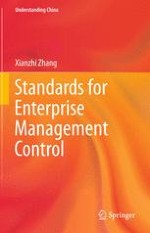2015 | Buch
Über dieses Buch
This book is mainly about facilitating the dissemination of management control, a field now finding application at a growing number of organizations, among commercial practitioners. It provides essential insights on management control as applied to Chinese enterprises and cross-border organizations. The book is divided into four parts. Part 1 provides the necessary background and framework for a discussion on enterprise management control standards, while Part 2 introduces a basic standard for enterprise management control. Part 3 introduces application guidelines for enterprise management control standards, and lastly Part 4 presents several case studies on the application of enterprise management control standards.
Anzeige
